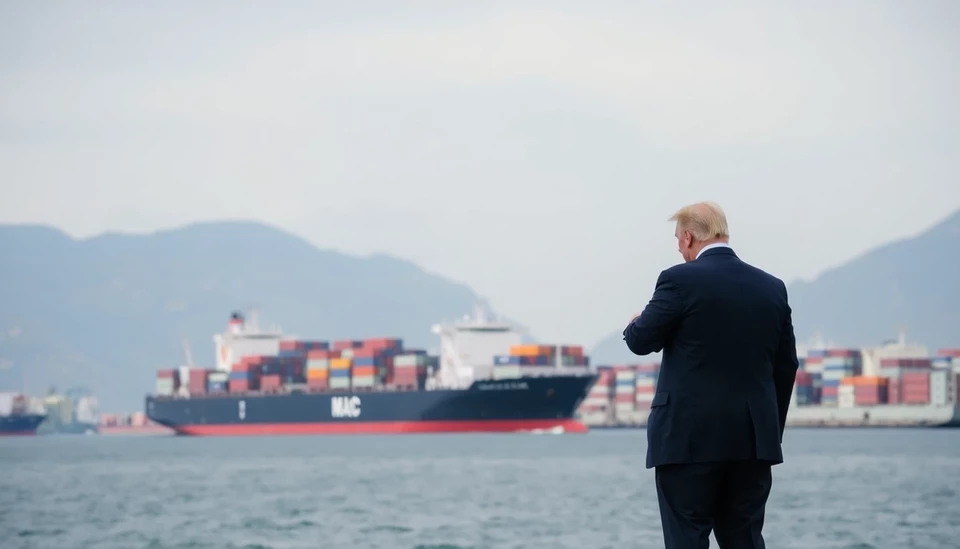
In a significant shift within the maritime shipping landscape, former President Donald Trump has announced plans to impose new regulations on vessels from China in an effort to reshape the global trade environment. This move, set to take effect in the upcoming months, aims to address what the Trump administration perceives as unfair advantages held by Chinese shipping companies and will likely ignite further tensions in United States-China relations.
According to officials close to the matter, this initiative will require Chinese vessels operating in U.S. waters to comply with stringent new financial and operational requirements. These could include steep tariffs on cargo transported by these ships, as well as new safety and environmental standards designed to ensure compliance with U.S. regulations. The initiative is intended to create a level playing field for American shipping companies, which have raised concerns about competition from their Chinese counterparts benefiting from government subsidies and regulatory advantages.
Trump, who is gearing up for a potential 2024 presidential run, highlighted the necessity of protecting American jobs and businesses as a driving force behind this decision. During a recent rally, he stated, “We will not stand idly by while our own companies are undercut by foreign competitors. This is about ensuring America remains a leader in global shipping and commerce.”
The proposed regulations have already sparked backlash from various sectors within the shipping and logistics industries. Critics argue that imposing tariffs could raise costs for American businesses and consumers, leading to higher prices on goods transported by Chinese vessels. Furthermore, industry experts warn that such actions could provoke retaliatory measures from China, potentially resulting in a trade war that could further disrupt global supply chains.
Supporters of Trump's initiative counter that the benefits of protecting American interests far outweigh the potential risks. They argue that increased regulation of Chinese shipping will not only bolster American shipping companies but also enhance the safety and environmental standards of maritime operations in the U.S. However, the outcome of these measures remains uncertain as stakeholders are closely monitoring how China will respond to this development.
In the broader context, this announcement serves as a reminder of the evolving dynamics within global trade and the ongoing friction between the U.S. and China. As countries navigate post-pandemic recovery and strive to stabilize supply chains, regulatory shifts such as these are likely to become focal points in international relations.
As the administration prepares to finalize these rules, all eyes will be on the implications for U.S.-China trade relations and the broader global shipping industry. Analysts suggest that this regulatory shake-up may set the stage for a new chapter in international maritime law and trade protectionism, raising essential questions about what the future holds for global commerce.
Stay tuned for further updates as the situation develops and stakeholders in the shipping industry continue to assess the full impact of this bold move by the Trump administration.
#Trump #ShippingRegulations #ChinaTrade #GlobalCommerce #USChinaRelations
Author: Daniel Foster




